35 items found
Page 1 of 1
-
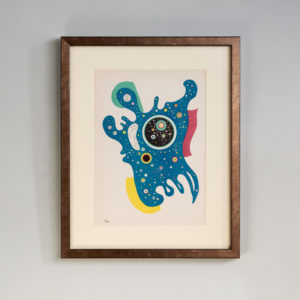
Stars by Wassily Kandinsky, Verve Vol. 1 / No. 2.
£800Stars by Wassily Kandinsky, Verve Vol. 1 / No. 2.
The Verve Review was a purposefully luxurious. It ran from 1937 to 1960, but with only 38 editions available, due to the high degree of design and editorial work dedicated to each issue. Each edition contained unique lithographic prints, commissioned by the editor, and each cover a double-page lithograph elaborated by one of the artists contained within. It was the brainchild of its editor Stratis Eleftheriades, a Greek National who moved to Paris in the early thirties to take part in the growing Modernist movement, writing under the name of Teriade.£800 -
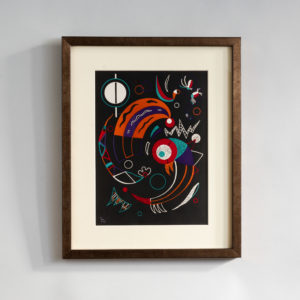
Comets by Wassily Kandinsky, Verve Vol. 1 / No. 2.
£800Comets by Wassily Kandinsky, Verve Vol. 1 / No. 2.
The Verve Review was a purposefully luxurious. It ran from 1937 to 1960, but with only 38 editions available, due to the high degree of design and editorial work dedicated to each issue. Each edition contained unique lithographic prints, commissioned by the editor, and each cover a double-page lithograph elaborated by one of the artists contained within. It was the brainchild of its editor Stratis Eleftheriades, a Greek National who moved to Paris in the early thirties to take part in the growing Modernist movement, writing under the name of Teriade.£800 -
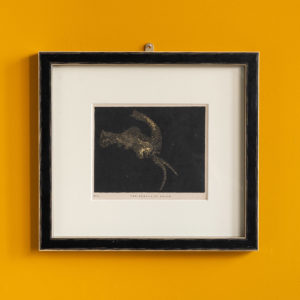
“The Beauty of the Heavens: A Pictorial Display of The Astronomical Phenomena of The Universe” by Charles Blunt, ‘The Nebula of Orion’,
£295 each“The Beauty of the Heavens: A Pictorial Display of The Astronomical Phenomena of The Universe” by Charles Blunt, ‘The Nebula of Orion’,
In the mid-19th century, Home Education had become very popular for the masses and lecturer, Charles Blunt seeing a gap in the market came up with these illustrations. Blunt who specialised in astronomy and natural philosophy, saw the need for a series of ‘accurate yet popular’ plates illustrating the known Universe. These hand-finished aquatints prints were based on Blunt’s own drawings, depicting celestial and astrological subjects.£295 each -
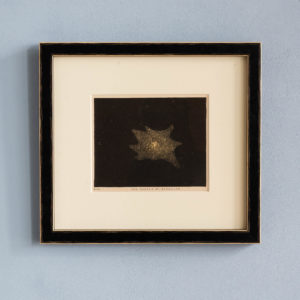
“The Beauty of the Heavens: A Pictorial Display of The Astronomical Phenomena of The Universe” by Charles Blunt, ‘The Nebula of Hercules’,
£295 each“The Beauty of the Heavens: A Pictorial Display of The Astronomical Phenomena of The Universe” by Charles Blunt, ‘The Nebula of Hercules’,
In the mid-19th century, Home Education had become very popular for the masses and lecturer, Charles Blunt seeing a gap in the market came up with these illustrations. Blunt who specialised in astronomy and natural philosophy, saw the need for a series of ‘accurate yet popular’ plates illustrating the known Universe. These hand-finished aquatints prints were based on Blunt’s own drawings, depicting celestial and astrological subjects.£295 each -
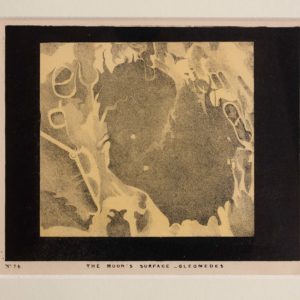
“The Beauty of the Heavens: A Pictorial Display of The Astronomical Phenomena of The Universe” by Charles Blunt, ‘The Moon’s Surface – Cleomedes’,
£295 each“The Beauty of the Heavens: A Pictorial Display of The Astronomical Phenomena of The Universe” by Charles Blunt, ‘The Moon’s Surface – Cleomedes’,
In the mid-19th century, Home Education had become very popular for the masses and lecturer, Charles Blunt seeing a gap in the market came up with these illustrations. Blunt who specialised in astronomy and natural philosophy, saw the need for a series of ‘accurate yet popular’ plates illustrating the known Universe. These hand-finished aquatints prints were based on Blunt’s own drawings, depicting celestial and astrological subjects.£295 each -
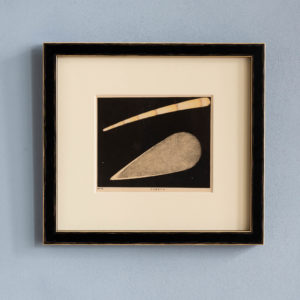
“The Beauty of the Heavens: A Pictorial Display of The Astronomical Phenomena of The Universe” by Charles Blunt, ‘Comets’,
£295 each“The Beauty of the Heavens: A Pictorial Display of The Astronomical Phenomena of The Universe” by Charles Blunt, ‘Comets’,
In the mid-19th century, Home Education had become very popular for the masses and lecturer, Charles Blunt seeing a gap in the market came up with these illustrations. Blunt who specialised in astronomy and natural philosophy, saw the need for a series of ‘accurate yet popular’ plates illustrating the known Universe. These hand-finished aquatints prints were based on Blunt’s own drawings, depicting celestial and astrological subjects.£295 each -
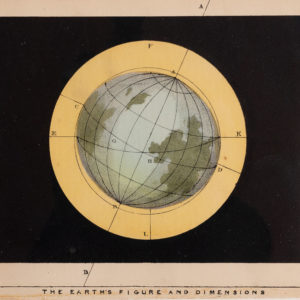
“The Beauty of the Heavens: A Pictorial Display of The Astronomical Phenomena of The Universe” by Charles Blunt, ‘The Earth’s Figure and Dimensions’,
£295 each“The Beauty of the Heavens: A Pictorial Display of The Astronomical Phenomena of The Universe” by Charles Blunt, ‘The Earth’s Figure and Dimensions’,
In the mid-19th century, Home Education had become very popular for the masses and lecturer, Charles Blunt seeing a gap in the market came up with these illustrations. Blunt who specialised in astronomy and natural philosophy, saw the need for a series of ‘accurate yet popular’ plates illustrating the known Universe. These hand-finished aquatints prints were based on Blunt’s own drawings, depicting celestial and astrological subjects.£295 each -
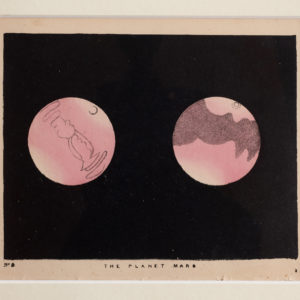
“The Beauty of the Heavens: A Pictorial Display of The Astronomical Phenomena of The Universe” by Charles Blunt, ‘The Planet Mars’,
£295 each“The Beauty of the Heavens: A Pictorial Display of The Astronomical Phenomena of The Universe” by Charles Blunt, ‘The Planet Mars’,
In the mid-19th century, Home Education had become very popular for the masses and lecturer, Charles Blunt seeing a gap in the market came up with these illustrations. Blunt who specialised in astronomy and natural philosophy, saw the need for a series of ‘accurate yet popular’ plates illustrating the known Universe. These hand-finished aquatints prints were based on Blunt’s own drawings, depicting celestial and astrological subjects.£295 each -
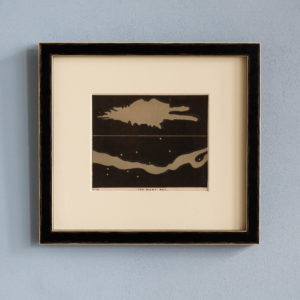
“The Beauty of the Heavens: A Pictorial Display of The Astronomical Phenomena of The Universe” by Charles Blunt, ‘The Milky Way’,
£295 each“The Beauty of the Heavens: A Pictorial Display of The Astronomical Phenomena of The Universe” by Charles Blunt, ‘The Milky Way’,
In the mid-19th century, Home Education had become very popular for the masses and lecturer, Charles Blunt seeing a gap in the market came up with these illustrations. Blunt who specialised in astronomy and natural philosophy, saw the need for a series of ‘accurate yet popular’ plates illustrating the known Universe. These hand-finished aquatints prints were based on Blunt’s own drawings, depicting celestial and astrological subjects.£295 each -
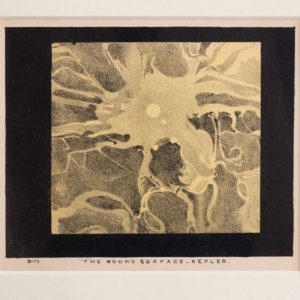
“The Beauty of the Heavens: A Pictorial Display of The Astronomical Phenomena of The Universe” by Charles Blunt, ‘The Moon’s Surface – Kepler’,
£295 each“The Beauty of the Heavens: A Pictorial Display of The Astronomical Phenomena of The Universe” by Charles Blunt, ‘The Moon’s Surface – Kepler’,
In the mid-19th century, Home Education had become very popular for the masses and lecturer, Charles Blunt seeing a gap in the market came up with these illustrations. Blunt who specialised in astronomy and natural philosophy, saw the need for a series of ‘accurate yet popular’ plates illustrating the known Universe. These hand-finished aquatints prints were based on Blunt’s own drawings, depicting celestial and astrological subjects.£295 each -
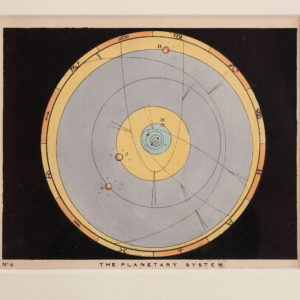
“The Beauty of the Heavens: A Pictorial Display of The Astronomical Phenomena of The Universe” by Charles Blunt, ‘The Planetary System’,
£295 each“The Beauty of the Heavens: A Pictorial Display of The Astronomical Phenomena of The Universe” by Charles Blunt, ‘The Planetary System’,
In the mid-19th century, Home Education had become very popular for the masses and lecturer, Charles Blunt seeing a gap in the market came up with these illustrations. Blunt who specialised in astronomy and natural philosophy, saw the need for a series of ‘accurate yet popular’ plates illustrating the known Universe. These hand-finished aquatints prints were based on Blunt’s own drawings, depicting celestial and astrological subjects.£295 each -
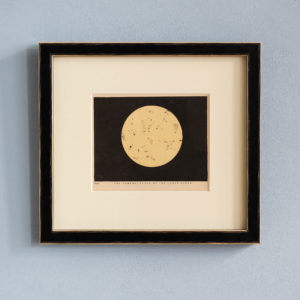
“The Beauty of the Heavens: A Pictorial Display of The Astronomical Phenomena of The Universe” by Charles Blunt, ‘The Nomenclature of the Lunar Spots’,
£295 each“The Beauty of the Heavens: A Pictorial Display of The Astronomical Phenomena of The Universe” by Charles Blunt, ‘The Nomenclature of the Lunar Spots’,
In the mid-19th century, Home Education had become very popular for the masses and lecturer, Charles Blunt seeing a gap in the market came up with these illustrations. Blunt who specialised in astronomy and natural philosophy, saw the need for a series of ‘accurate yet popular’ plates illustrating the known Universe. These hand-finished aquatints prints were based on Blunt’s own drawings, depicting celestial and astrological subjects.£295 each -
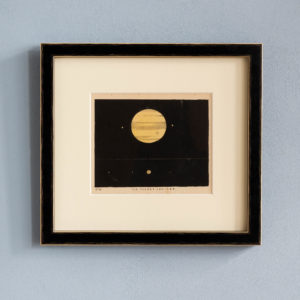
“The Beauty of the Heavens: A Pictorial Display of The Astronomical Phenomena of The Universe” by Charles Blunt, ‘The Planet Jupiter’,
£295 each“The Beauty of the Heavens: A Pictorial Display of The Astronomical Phenomena of The Universe” by Charles Blunt, ‘The Planet Jupiter’,
In the mid-19th century, Home Education had become very popular for the masses and lecturer, Charles Blunt seeing a gap in the market came up with these illustrations. Blunt who specialised in astronomy and natural philosophy, saw the need for a series of ‘accurate yet popular’ plates illustrating the known Universe. These hand-finished aquatints prints were based on Blunt’s own drawings, depicting celestial and astrological subjects.£295 each -
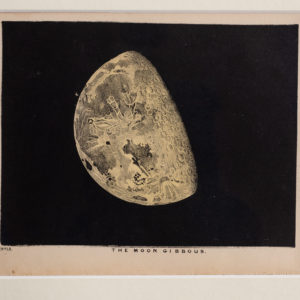
“The Beauty of the Heavens: A Pictorial Display of The Astronomical Phenomena of The Universe” by Charles Blunt, ‘The Moon Gibbous’,
£295 each“The Beauty of the Heavens: A Pictorial Display of The Astronomical Phenomena of The Universe” by Charles Blunt, ‘The Moon Gibbous’,
In the mid-19th century, Home Education had become very popular for the masses and lecturer, Charles Blunt seeing a gap in the market came up with these illustrations. Blunt who specialised in astronomy and natural philosophy, saw the need for a series of ‘accurate yet popular’ plates illustrating the known Universe. These hand-finished aquatints prints were based on Blunt’s own drawings, depicting celestial and astrological subjects.£295 each -
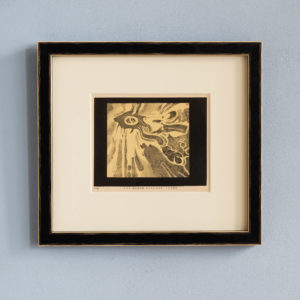
“The Beauty of the Heavens: A Pictorial Display of The Astronomical Phenomena of The Universe” by Charles Blunt, ‘The Moon’s Surface – Tycho’,
£295 each“The Beauty of the Heavens: A Pictorial Display of The Astronomical Phenomena of The Universe” by Charles Blunt, ‘The Moon’s Surface – Tycho’,
In the mid-19th century, Home Education had become very popular for the masses and lecturer, Charles Blunt seeing a gap in the market came up with these illustrations. Blunt who specialised in astronomy and natural philosophy, saw the need for a series of ‘accurate yet popular’ plates illustrating the known Universe. These hand-finished aquatints prints were based on Blunt’s own drawings, depicting celestial and astrological subjects.£295 each -
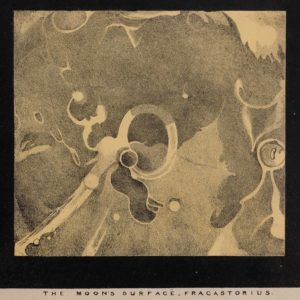
“The Beauty of the Heavens: A Pictorial Display of The Astronomical Phenomena of The Universe” by Charles Blunt, ‘The Moon’s Surface’,
£295 each“The Beauty of the Heavens: A Pictorial Display of The Astronomical Phenomena of The Universe” by Charles Blunt, ‘The Moon’s Surface’,
In the mid-19th century, Home Education had become very popular for the masses and lecturer, Charles Blunt seeing a gap in the market came up with these illustrations. Blunt who specialised in astronomy and natural philosophy, saw the need for a series of ‘accurate yet popular’ plates illustrating the known Universe. These hand-finished aquatints prints were based on Blunt’s own drawings, depicting celestial and astrological subjects.£295 each -
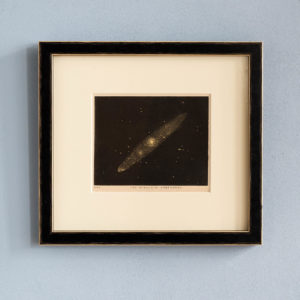
“The Beauty of the Heavens: A Pictorial Display of The Astronomical Phenomena of The Universe” by Charles Blunt, ‘The Nebula of Andromeda’,
£295 each“The Beauty of the Heavens: A Pictorial Display of The Astronomical Phenomena of The Universe” by Charles Blunt, ‘The Nebula of Andromeda’,
In the mid-19th century, Home Education had become very popular for the masses and lecturer, Charles Blunt seeing a gap in the market came up with these illustrations. Blunt who specialised in astronomy and natural philosophy, saw the need for a series of ‘accurate yet popular’ plates illustrating the known Universe. These hand-finished aquatints prints were based on Blunt’s own drawings, depicting celestial and astrological subjects.£295 each -
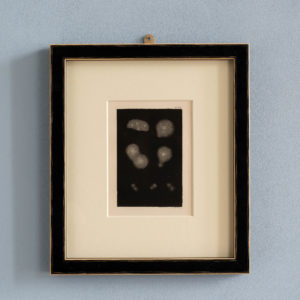
Views of the Architecture of the Heavens, by John Nichol
£250 eachViews of the Architecture of the Heavens, by John Nichol
John Pringle Nichol who, a Scottish Romantic astronomer, educator, and social reformer, who produced popular science books between 1846 and 1850. As the 5th Regius Professor of Astronomy at the University of Edinburgh , influenced the building of a large observatory beyond the city on Horselethill, paid for by the local citizens. In 1841, it was saved from financial collapse by the University. Part of the difficulties had arisen through Nichol's extravagance in purchasing unnecessarily expensive equipment. Eventually, Horselethill Observatory was kept in operation for 100 years. Nichol was a prolific writer and populariser of Astronomy; his books Contemplations on the Solar System and Views of the Architecture of the Heavens, the latter expanding on the Nebular Hypothesis, and one describing the discovery of Neptune£250 each -
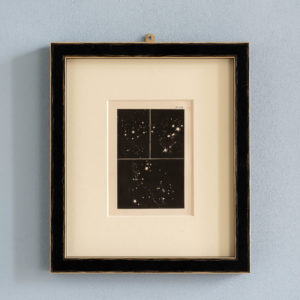
Views of the Architecture of the Heavens, by John Nichol
£250 eachViews of the Architecture of the Heavens, by John Nichol
John Pringle Nichol who, a Scottish Romantic astronomer, educator, and social reformer, who produced popular science books between 1846 and 1850. As the 5th Regius Professor of Astronomy at the University of Edinburgh , influenced the building of a large observatory beyond the city on Horselethill, paid for by the local citizens. In 1841, it was saved from financial collapse by the University. Part of the difficulties had arisen through Nichol's extravagance in purchasing unnecessarily expensive equipment. Eventually, Horselethill Observatory was kept in operation for 100 years. Nichol was a prolific writer and populariser of Astronomy; his books Contemplations on the Solar System and Views of the Architecture of the Heavens, the latter expanding on the Nebular Hypothesis, and one describing the discovery of Neptune£250 each -
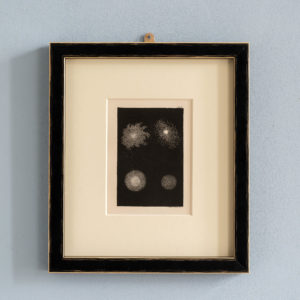
Views of the Architecture of the Heavens, by John Nichol
£250 eachViews of the Architecture of the Heavens, by John Nichol
John Pringle Nichol who, a Scottish Romantic astronomer, educator, and social reformer, who produced popular science books between 1846 and 1850. As the 5th Regius Professor of Astronomy at the University of Edinburgh , influenced the building of a large observatory beyond the city on Horselethill, paid for by the local citizens. In 1841, it was saved from financial collapse by the University. Part of the difficulties had arisen through Nichol's extravagance in purchasing unnecessarily expensive equipment. Eventually, Horselethill Observatory was kept in operation for 100 years. Nichol was a prolific writer and populariser of Astronomy; his books Contemplations on the Solar System and Views of the Architecture of the Heavens, the latter expanding on the Nebular Hypothesis, and one describing the discovery of Neptune£250 each -
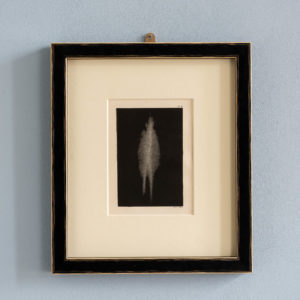
Views of the Architecture of the Heavens, by John Nichol
£250 eachViews of the Architecture of the Heavens, by John Nichol
John Pringle Nichol who, a Scottish Romantic astronomer, educator, and social reformer, who produced popular science books between 1846 and 1850. As the 5th Regius Professor of Astronomy at the University of Edinburgh , influenced the building of a large observatory beyond the city on Horselethill, paid for by the local citizens. In 1841, it was saved from financial collapse by the University. Part of the difficulties had arisen through Nichol's extravagance in purchasing unnecessarily expensive equipment. Eventually, Horselethill Observatory was kept in operation for 100 years. Nichol was a prolific writer and populariser of Astronomy; his books Contemplations on the Solar System and Views of the Architecture of the Heavens, the latter expanding on the Nebular Hypothesis, and one describing the discovery of Neptune£250 each -
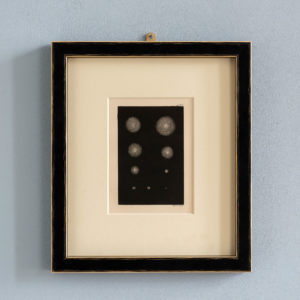
Views of the Architecture of the Heavens, by John Nichol
£250 eachViews of the Architecture of the Heavens, by John Nichol
John Pringle Nichol who, a Scottish Romantic astronomer, educator, and social reformer, who produced popular science books between 1846 and 1850. As the 5th Regius Professor of Astronomy at the University of Edinburgh , influenced the building of a large observatory beyond the city on Horselethill, paid for by the local citizens. In 1841, it was saved from financial collapse by the University. Part of the difficulties had arisen through Nichol's extravagance in purchasing unnecessarily expensive equipment. Eventually, Horselethill Observatory was kept in operation for 100 years. Nichol was a prolific writer and populariser of Astronomy; his books Contemplations on the Solar System and Views of the Architecture of the Heavens, the latter expanding on the Nebular Hypothesis, and one describing the discovery of Neptune£250 each -
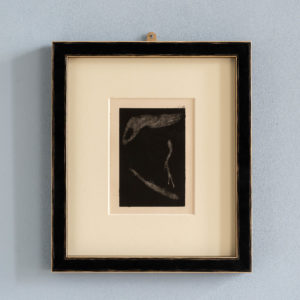
Views of the Architecture of the Heavens, by John Nichol
£250 eachViews of the Architecture of the Heavens, by John Nichol
John Pringle Nichol who, a Scottish Romantic astronomer, educator, and social reformer, who produced popular science books between 1846 and 1850. As the 5th Regius Professor of Astronomy at the University of Edinburgh , influenced the building of a large observatory beyond the city on Horselethill, paid for by the local citizens. In 1841, it was saved from financial collapse by the University. Part of the difficulties had arisen through Nichol's extravagance in purchasing unnecessarily expensive equipment. Eventually, Horselethill Observatory was kept in operation for 100 years. Nichol was a prolific writer and populariser of Astronomy; his books Contemplations on the Solar System and Views of the Architecture of the Heavens, the latter expanding on the Nebular Hypothesis, and one describing the discovery of Neptune£250 each -
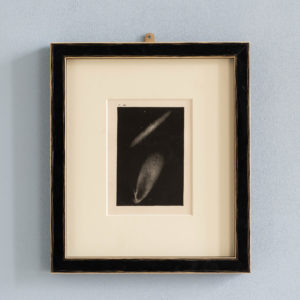
Views of the Architecture of the Heavens, by John Nichol
£250 eachViews of the Architecture of the Heavens, by John Nichol
John Pringle Nichol who, a Scottish Romantic astronomer, educator, and social reformer, who produced popular science books between 1846 and 1850. As the 5th Regius Professor of Astronomy at the University of Edinburgh , influenced the building of a large observatory beyond the city on Horselethill, paid for by the local citizens. In 1841, it was saved from financial collapse by the University. Part of the difficulties had arisen through Nichol's extravagance in purchasing unnecessarily expensive equipment. Eventually, Horselethill Observatory was kept in operation for 100 years. Nichol was a prolific writer and populariser of Astronomy; his books Contemplations on the Solar System and Views of the Architecture of the Heavens, the latter expanding on the Nebular Hypothesis, and one describing the discovery of Neptune£250 each -
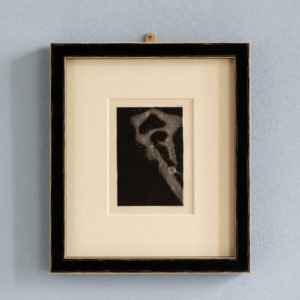
Views of the Architecture of the Heavens, by John Nichol
£250 eachViews of the Architecture of the Heavens, by John Nichol
John Pringle Nichol who, a Scottish Romantic astronomer, educator, and social reformer, who produced popular science books between 1846 and 1850. As the 5th Regius Professor of Astronomy at the University of Edinburgh , influenced the building of a large observatory beyond the city on Horselethill, paid for by the local citizens. In 1841, it was saved from financial collapse by the University. Part of the difficulties had arisen through Nichol's extravagance in purchasing unnecessarily expensive equipment. Eventually, Horselethill Observatory was kept in operation for 100 years. Nichol was a prolific writer and populariser of Astronomy; his books Contemplations on the Solar System and Views of the Architecture of the Heavens, the latter expanding on the Nebular Hypothesis, and one describing the discovery of Neptune£250 each -
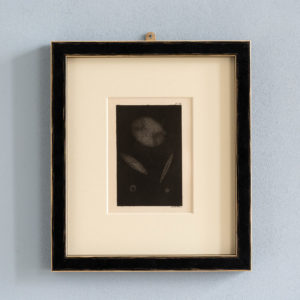
Views of the Architecture of the Heavens, by John Nichol
£250 eachViews of the Architecture of the Heavens, by John Nichol
John Pringle Nichol who, a Scottish Romantic astronomer, educator, and social reformer, who produced popular science books between 1846 and 1850. As the 5th Regius Professor of Astronomy at the University of Edinburgh , influenced the building of a large observatory beyond the city on Horselethill, paid for by the local citizens. In 1841, it was saved from financial collapse by the University. Part of the difficulties had arisen through Nichol's extravagance in purchasing unnecessarily expensive equipment. Eventually, Horselethill Observatory was kept in operation for 100 years. Nichol was a prolific writer and populariser of Astronomy; his books Contemplations on the Solar System and Views of the Architecture of the Heavens, the latter expanding on the Nebular Hypothesis, and one describing the discovery of Neptune£250 each -
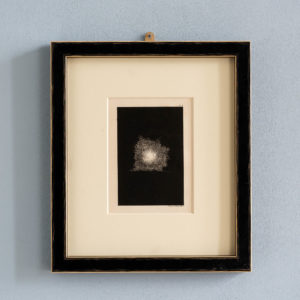
Views of the Architecture of the Heavens, by John Nichol
£250 eachViews of the Architecture of the Heavens, by John Nichol
John Pringle Nichol who, a Scottish Romantic astronomer, educator, and social reformer, who produced popular science books between 1846 and 1850. As the 5th Regius Professor of Astronomy at the University of Edinburgh , influenced the building of a large observatory beyond the city on Horselethill, paid for by the local citizens. In 1841, it was saved from financial collapse by the University. Part of the difficulties had arisen through Nichol's extravagance in purchasing unnecessarily expensive equipment. Eventually, Horselethill Observatory was kept in operation for 100 years. Nichol was a prolific writer and populariser of Astronomy; his books Contemplations on the Solar System and Views of the Architecture of the Heavens, the latter expanding on the Nebular Hypothesis, and one describing the discovery of Neptune£250 each -
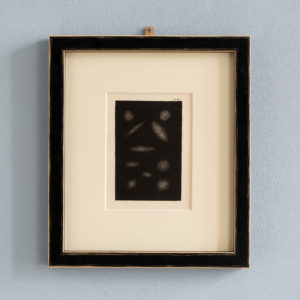
Views of the Architecture of the Heavens, by John Nichol
£250 eachViews of the Architecture of the Heavens, by John Nichol
John Pringle Nichol who, a Scottish Romantic astronomer, educator, and social reformer, who produced popular science books between 1846 and 1850. As the 5th Regius Professor of Astronomy at the University of Edinburgh , influenced the building of a large observatory beyond the city on Horselethill, paid for by the local citizens. In 1841, it was saved from financial collapse by the University. Part of the difficulties had arisen through Nichol's extravagance in purchasing unnecessarily expensive equipment. Eventually, Horselethill Observatory was kept in operation for 100 years. Nichol was a prolific writer and populariser of Astronomy; his books Contemplations on the Solar System and Views of the Architecture of the Heavens, the latter expanding on the Nebular Hypothesis, and one describing the discovery of Neptune£250 each -
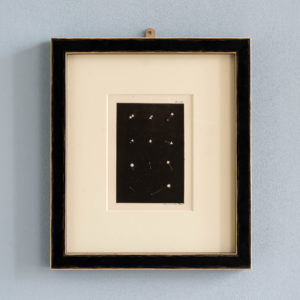
Views of the Architecture of the Heavens, by John Nichol
£250 eachViews of the Architecture of the Heavens, by John Nichol
John Pringle Nichol who, a Scottish Romantic astronomer, educator, and social reformer, who produced popular science books between 1846 and 1850. As the 5th Regius Professor of Astronomy at the University of Edinburgh , influenced the building of a large observatory beyond the city on Horselethill, paid for by the local citizens. In 1841, it was saved from financial collapse by the University. Part of the difficulties had arisen through Nichol's extravagance in purchasing unnecessarily expensive equipment. Eventually, Horselethill Observatory was kept in operation for 100 years. Nichol was a prolific writer and populariser of Astronomy; his books Contemplations on the Solar System and Views of the Architecture of the Heavens, the latter expanding on the Nebular Hypothesis, and one describing the discovery of Neptune£250 each -

Views of the Architecture of the Heavens, by John Nichol
£250 eachViews of the Architecture of the Heavens, by John Nichol
John Pringle Nichol who, a Scottish Romantic astronomer, educator, and social reformer, who produced popular science books between 1846 and 1850. As the 5th Regius Professor of Astronomy at the University of Edinburgh , influenced the building of a large observatory beyond the city on Horselethill, paid for by the local citizens. In 1841, it was saved from financial collapse by the University. Part of the difficulties had arisen through Nichol's extravagance in purchasing unnecessarily expensive equipment. Eventually, Horselethill Observatory was kept in operation for 100 years. Nichol was a prolific writer and populariser of Astronomy; his books Contemplations on the Solar System and Views of the Architecture of the Heavens, the latter expanding on the Nebular Hypothesis, and one describing the discovery of Neptune£250 each -
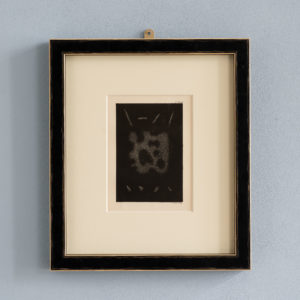
Views of the Architecture of the Heavens, by John Nichol
£250 eachViews of the Architecture of the Heavens, by John Nichol
John Pringle Nichol who, a Scottish Romantic astronomer, educator, and social reformer, who produced popular science books between 1846 and 1850. As the 5th Regius Professor of Astronomy at the University of Edinburgh , influenced the building of a large observatory beyond the city on Horselethill, paid for by the local citizens. In 1841, it was saved from financial collapse by the University. Part of the difficulties had arisen through Nichol's extravagance in purchasing unnecessarily expensive equipment. Eventually, Horselethill Observatory was kept in operation for 100 years. Nichol was a prolific writer and populariser of Astronomy; his books Contemplations on the Solar System and Views of the Architecture of the Heavens, the latter expanding on the Nebular Hypothesis, and one describing the discovery of Neptune£250 each -
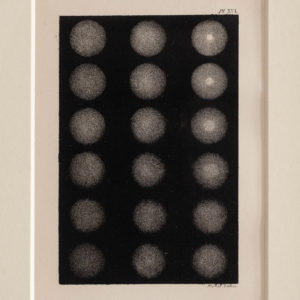
Views of the Architecture of the Heavens, by John Nichol
£250 eachViews of the Architecture of the Heavens, by John Nichol
John Pringle Nichol who, a Scottish Romantic astronomer, educator, and social reformer, who produced popular science books between 1846 and 1850. As the 5th Regius Professor of Astronomy at the University of Edinburgh , influenced the building of a large observatory beyond the city on Horselethill, paid for by the local citizens. In 1841, it was saved from financial collapse by the University. Part of the difficulties had arisen through Nichol's extravagance in purchasing unnecessarily expensive equipment. Eventually, Horselethill Observatory was kept in operation for 100 years. Nichol was a prolific writer and populariser of Astronomy; his books Contemplations on the Solar System and Views of the Architecture of the Heavens, the latter expanding on the Nebular Hypothesis, and one describing the discovery of Neptune£250 each -

Views of the Architecture of the Heavens, by John Nichol
£250 eachViews of the Architecture of the Heavens, by John Nichol
John Pringle Nichol who, a Scottish Romantic astronomer, educator, and social reformer, who produced popular science books between 1846 and 1850. As the 5th Regius Professor of Astronomy at the University of Edinburgh , influenced the building of a large observatory beyond the city on Horselethill, paid for by the local citizens. In 1841, it was saved from financial collapse by the University. Part of the difficulties had arisen through Nichol's extravagance in purchasing unnecessarily expensive equipment. Eventually, Horselethill Observatory was kept in operation for 100 years. Nichol was a prolific writer and populariser of Astronomy; his books Contemplations on the Solar System and Views of the Architecture of the Heavens, the latter expanding on the Nebular Hypothesis, and one describing the discovery of Neptune£250 each -
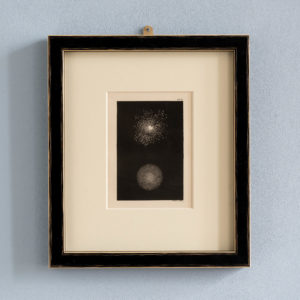
Views of the Architecture of the Heavens, by John Nichol
£250 eachViews of the Architecture of the Heavens, by John Nichol
John Pringle Nichol who, a Scottish Romantic astronomer, educator, and social reformer, who produced popular science books between 1846 and 1850. As the 5th Regius Professor of Astronomy at the University of Edinburgh , influenced the building of a large observatory beyond the city on Horselethill, paid for by the local citizens. In 1841, it was saved from financial collapse by the University. Part of the difficulties had arisen through Nichol's extravagance in purchasing unnecessarily expensive equipment. Eventually, Horselethill Observatory was kept in operation for 100 years. Nichol was a prolific writer and populariser of Astronomy; his books Contemplations on the Solar System and Views of the Architecture of the Heavens, the latter expanding on the Nebular Hypothesis, and one describing the discovery of Neptune£250 each -
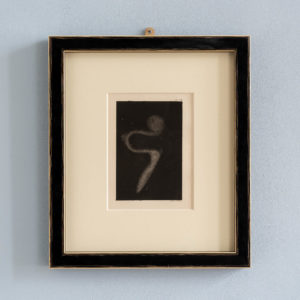
Views of the Architecture of the Heavens, by John Nichol
£250 eachViews of the Architecture of the Heavens, by John Nichol
John Pringle Nichol who, a Scottish Romantic astronomer, educator, and social reformer, who produced popular science books between 1846 and 1850. As the 5th Regius Professor of Astronomy at the University of Edinburgh , influenced the building of a large observatory beyond the city on Horselethill, paid for by the local citizens. In 1841, it was saved from financial collapse by the University. Part of the difficulties had arisen through Nichol's extravagance in purchasing unnecessarily expensive equipment. Eventually, Horselethill Observatory was kept in operation for 100 years. Nichol was a prolific writer and populariser of Astronomy; his books Contemplations on the Solar System and Views of the Architecture of the Heavens, the latter expanding on the Nebular Hypothesis, and one describing the discovery of Neptune£250 each
Featured Items
-

Stars by Wassily Kandinsky, Verve Vol. 1 / No. 2.
£800Stars by Wassily Kandinsky, Verve Vol. 1 / No. 2.
The Verve Review was a purposefully luxurious. It ran from 1937 to 1960, but with only 38 editions available, due to the high degree of design and editorial work dedicated to each issue. Each edition contained unique lithographic prints, commissioned by the editor, and each cover a double-page lithograph elaborated by one of the artists contained within. It was the brainchild of its editor Stratis Eleftheriades, a Greek National who moved to Paris in the early thirties to take part in the growing Modernist movement, writing under the name of Teriade.£800 -
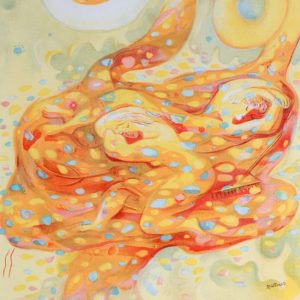
Autumn by Abraham Rattner, Verve Vol. 1 / No. 3.
£600Autumn by Abraham Rattner, Verve Vol. 1 / No. 3.
The Verve Review was a purposefully luxurious. It ran from 1937 to 1960, but with only 38 editions available, due to the high degree of design and editorial work dedicated to each issue. Each edition contained unique lithographic prints, commissioned by the editor, and each cover a double-page lithograph elaborated by one of the artists contained within. It was the brainchild of its editor Stratis Eleftheriades, a Greek National who moved to Paris in the early thirties to take part in the growing Modernist movement, writing under the name of Teriade.£600 -
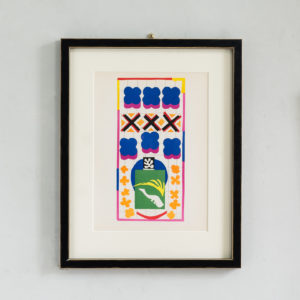
Henri Matisse, ‘The Last Works of Henri Matisse’
£900 eachHenri Matisse, ‘The Last Works of Henri Matisse’
From Verve Vol. IX No. 35/36 published by Tériade under the title 'The Last Works of Henri Matisse'£900 each -
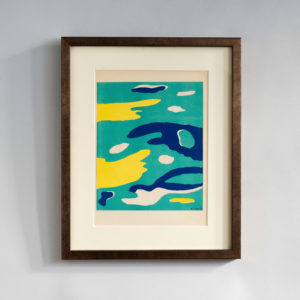
The Four Elements, Water by Fernand Leger, Verve Vol. 1 / No. 1.
£600The Four Elements, Water by Fernand Leger, Verve Vol. 1 / No. 1.
The Verve Review was a purposefully luxurious. It ran from 1937 to 1960, but with only 38 editions available, due to the high degree of design and editorial work dedicated to each issue. Each edition contained unique lithographic prints, commissioned by the editor, and each cover a double-page lithograph elaborated by one of the artists contained within. It was the brainchild of its editor Stratis Eleftheriades, a Greek National who moved to Paris in the early thirties to take part in the growing Modernist movement, writing under the name of Teriade.£600
